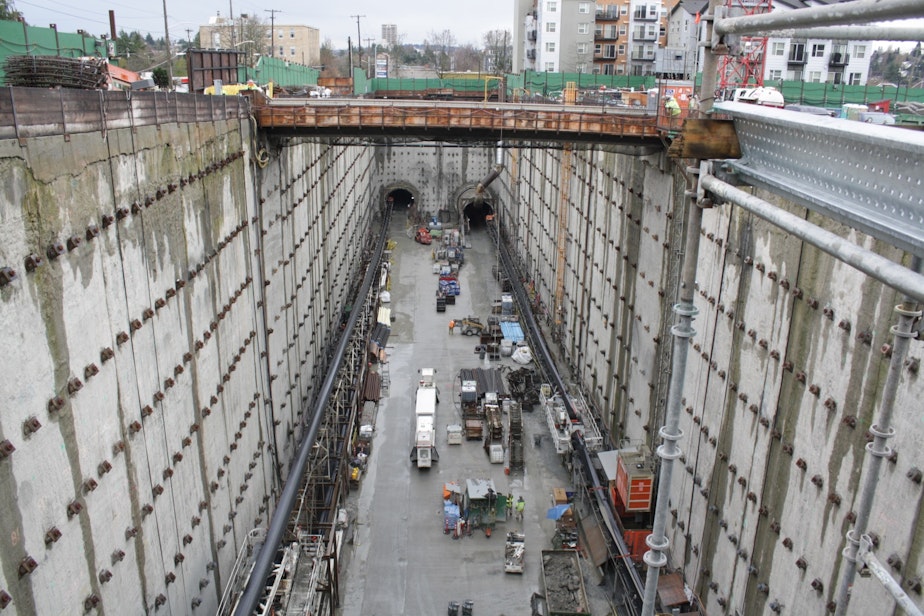Has Sound Transit Been Buying Public Land On The Cheap?

An independent consultant says Sound Transit is doing a good job estimating costs as it shapes the Sound Transit 3 ballot measure. But a cost estimate can’t predict everything — future property values, for example, or even more earthly things, such as the cost of a pound of rebar.The cost of rebar is important if you’re trying to price out a transit tunnel under downtown Seattle. It takes lots of rebar to build a tunnel like that. Small differences in the cost of rebar, multiplied across a huge project, make big differences.
In the 1990s, when Sound Transit came up with its first cost estimates, every consultant probably gave a different price on the cost of rebar. That kind of variability partially explains why the agency’s first estimates were so off at that time.
More from KUOW: Tell Us About A Change In Your Neighborhood
These days, the agency maintains a library of costs based on past experience. When it wants to know the cost of rebar, Sound Transit requires all the consultants to share the same assumptions. That partly explains how recent projects have more closely matched estimates and sometimes came in under budget.
But accounting tools can’t account for politics.
Sponsored
State Senator Curtis King (R-Yakima), chair of the Joint Transportation Committee, has criticized the state of Washington for offering to give away the public right of way to Sound Transit at too steep a discount.
It seems those discounts were baked into Sound Transit's preliminary estimates for the Sound Transit 3 ballot package. How deeply baked in, we don't know yet.
King led the group that fired Washington State Department of Transportation Secretary Lynn Peterson. Now, he’s promoting legislation in the transportation committee that would require the state to get fair market value when it leases right-of-way land to Sound Transit.
Up until now, that had been standard practice. But, Sound Transit, expecting friendlier leases under Peterson, had apparently used a lower land value when estimating right-of-way costs.
The issue of what's fair, and what's fair to bake into your cost estimates, becomes murky when you're talking about air space over highways that can't be used for any other purpose but transportation, the land for which it was purchased using mostly federal money.
Sponsored
Sound Transit's general counsel Desmond Brown testified before the Washington Senate Transportation Committee that the bill would "substantially increase the cost of the light rail system and negatively impact our ability to expand the system to Everett and Tacoma."
Also in testimony, Bob Pishue of the Washington Policy Center said, “Ultimately the question is whether taxpayers across the state should have to subsidize Sound Transit's light rail expansion.”
Like the cost of rebar, purchase of public right of way is a relatively small purchase that, when repeated again and again, makes a significant contribution to the cost of expanding light rail.
Changes in what the state charges for right of way could change the cost of transit and what Sound Transit can purchase with the taxes authorized by the state.

